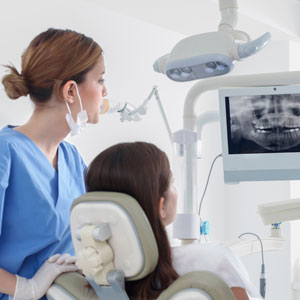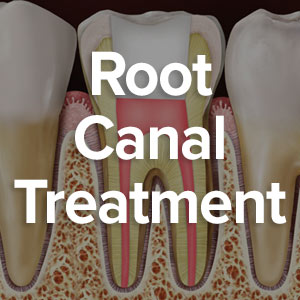
About one-quarter of people have teeth that never developed. While most of these congenitally missing teeth are wisdom teeth, they can also include premolars or lateral incisors (the teeth right next to the two front teeth, the central incisors).
Missing teeth can have an adverse effect on smile appearance. But that’s not all: because each type of tooth performs a specific function, one or more missing teeth can lead to bite problems and disruption of dental function. In the case of missing lateral incisors, the canines (eye teeth) normally positioned beside and toward the back of the mouth from them may begin to drift into the empty space and grow next to the central incisors. This can result in greater difficulty chewing and a smile that “doesn’t look right.”
To correct this situation, we must often first attempt to orthodontically move any out of place teeth to their normal positions. This re-establishes the space needed for the missing teeth to be replaced, which we can then restore with prosthetic (artificial) teeth. If the permanent restoration of choice involves dental implants, we’ll usually need to wait until the completion of jaw development around early adulthood. In the mean time, we can use a retainer appliance to hold the teeth in their new positions with prosthetic teeth attached to fill the empty space for a better smile appearance in the interim.
The real issue is timing—beginning orthodontic treatment when appropriate to a person’s oral development, as well as completing the implant restoration when the mouth has matured sufficiently. There are other considerations such as bone volume, which may have diminished due to the missing teeth. At some point we may need to consider grafting to build up the bone sufficiently to support dental implants.
This all may entail a team approach by various specialties like orthodontics, periodontics and implantology. Working together and coordinating within a timely schedule, a mouth and smile marred by undeveloped teeth can be transformed.
If you would like more information on treating smiles with underdeveloped permanent teeth, please contact us or schedule an appointment for a consultation. You can also learn more about this topic by reading the Dear Doctor magazine article “When Permanent Teeth Don’t Grow.”




No comment yet, add your voice below!